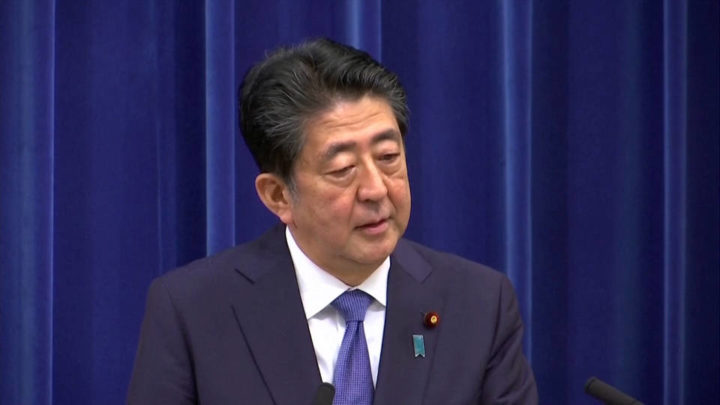Japanese Prime Minister Shinzo Abe ended weeks of speculation about the state of his health by announcing his surprise resignation today.
The 65-year-old Abe was finally forced to concede to the ulcerative colitis intestinal disease that had brought his first brief term in office to an end in 2007.
After being treated with a new course of medication, Abe made a remarkable political comeback in 2012. He regained the leadership of the conservative Liberal Democratic Party (LDP), and led it back into government, three years after it was knocked out of power.
Abe easily defeated the weak and disorganised opposition parties in the 2014 and 2017 elections, and in 2018 secured an unprecedented third three-year term as LDP president, with his supporters speculating he could lead for yet another.
Partial successes in the economy, defence
Abe kept up this political success based around his core economic policy, prominently marketed as “Abenomics”. This comprised the three “arrows” of record stimulus spending, quantitative easing (printing money to buy assets), and attempts at deregulation.
Abenomics was partially successful at restoring mild economic growth, but this started to wane after consumption tax hikes last October. The country then slipped into recession with the coronavirus pandemic.
In foreign policy, the nationalistic Abe reinterpreted Japan’s pacifist constitution, passing bills in the Diet in 2015 to allow collective self-defence with its US ally — despite a lack of public support and large student-led demonstrations.
Accompanied by a sharp increase in defence spending, Abe’s long-held desire to change the constitution to allow even more assertive use of the Japanese Self-Defence Forces was left unfulfilled. In 2019 Upper House elections, the LDP and its coalition partners lost the two-thirds majority required to allow any constitutional referendum.
Despite this setback, the lack of a strong challenger within the LDP — as well as the failure of the opposition parties to pose any credible threat — allowed Abe eventually to become the longest-serving prime minister in Japanese history.
Deeper relations with regional states
Abe energetically pursued foreign affairs throughout his tenure, maintaining the key US alliance through presidents Barack Obama to Donald Trump.
He sought greater Japanese participation in regional security by promoting a “free and open Indo-Pacific” region, and in doing so, deepened Japan’s strategic relations with India, ASEAN and Australia.
Abe managed largely stable relations with China, Japan’s largest trading partner, but territorial disputes with Beijing, as well as with Russia and South Korea, also went unresolved. Relations with South Korea, in particular, reached a low point over their wartime and colonial history.
Abe nevertheless built on his image as a senior world leader, culminating in hosting the G20 summit in Osaka last year.










